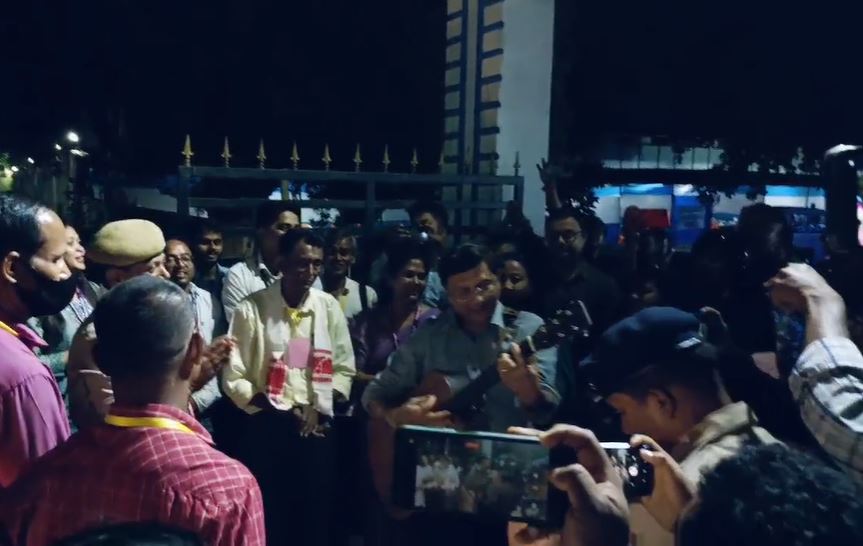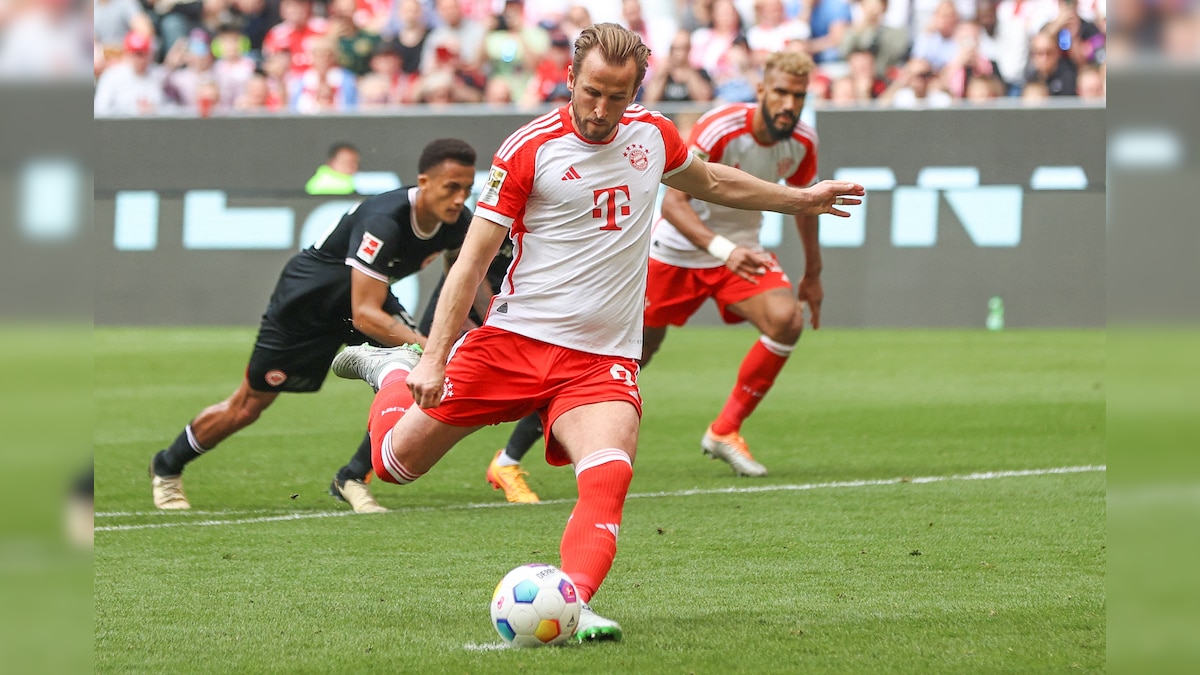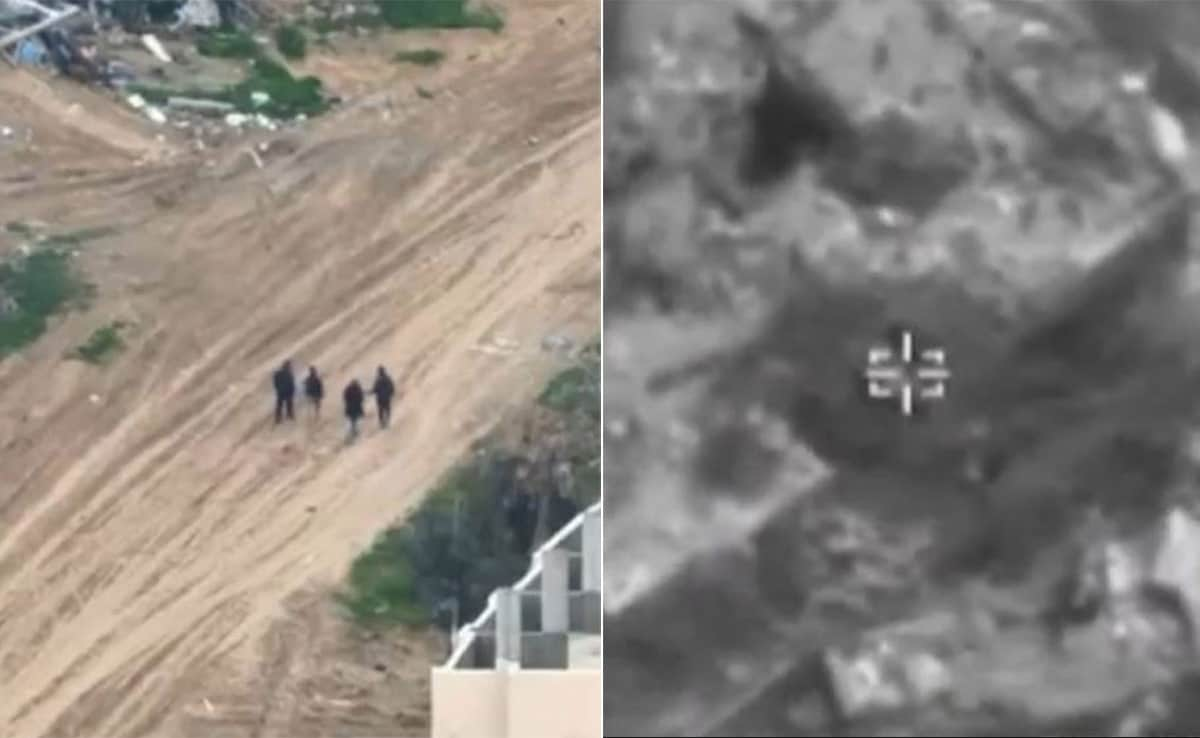“Part of the Army that took down Larry Nassar,” is how Rachael Denhollander describes herself on her Twitter bio. It is an identity that the former gymnast embraces with quiet dignity. She blew the lid off the biggest sexual abuse scandal in sporting history by publicly speaking out against Nassar — the former USA Gymnastics team doctor — for sexually assaulting gymnasts for over two decades. Nassar was eventually convicted and he is currently serving a 60-year sentence in the US federal prison.

Denhollander, an advocate by profession, waited for 16 years to tell her story. Following her revelation, over 200 women including Olympics medallists Simone Biles, McKayla Maroney and Aly Raisman found strength to narrate their experiences of sexual abuse by Nassar.
Today, the 38-year-old Denhollander, a leading voice and activist against sexual abuse, is keeping track of the upheaval in Indian sports too. Indian wrestlers are in the middle of a protracted fight against former Wrestling Federation of India (WFI) president Brij Bhushan Sharan Singh, whom they have accused of sexual harassment.
In a detailed interview, Denhollander speaks of the intense trauma that an athlete goes through after being sexually harassed and the ‘high cost’ involved in choosing to speak out. She feels sports federations around the world “do not care enough to change because there’s a lot of money and a lot of power on the line”.
Denhollander says her heart goes out for Vinesh Phogat, Sakshi Malik and other women wrestlers who have spoken out. “I am very, very proud of what they are doing and I hope they can feel pride in the courage and deep convictions that they have,” Denhollander says.
“It takes incredible strength of character and conviction for these women to do what they are doing. It comes with a lot of emotions and with a lot of cost. People have all kinds of details that they were never supposed to have. You do not get to become just you anymore. Your life takes on an identity that you never intended for. Your name is tied to your abuser in a way that you never wanted, and you can’t walk back. They are willing to go through all of that to protect the next generation. These athletes need to know that they are worth more than the medals.”
Here’s the full interview:
Are you following the wrestlers’ protest in India?
Yes. I’ve tried to track the developments. It needs incredible courage and strength of character for these women to come forward and tell their stories.
What does an athlete go through when she chooses to speak out?
I think a lot of what you see is a mix of desperation and of hope. It is incredibly painful and costly to speak publicly about these things. There is an incredible risk because the statistics on any kind of justice, even in the US, are very poor.
When you speak against the authorities, what they will experience in retaliation — you have to be very desperate to get to that point (of disclosure), to keep what happened to you from happening to somebody else. These women are paying a price when they should have been the ones who should have been protected.
These wrestlers are active and India’s Olympic and Worlds medallists…
Yeah. There is a high cost to it on every level. One of the things USA Gymnastics said over and over again during our case is: “We can’t make all these radical changes. Because what about the current athletes?” The reality is, when you ask that question, what you’re really saying is ‘our athletes winning is still more important than keeping our athletes safe.’ If we can keep them safe and we can make these radical changes and they can still win, well then, it’s worth making the changes. Athletes need to know that they are worth more than the medals they can win.
When the wrestlers came out with allegations against the WFI president, people asked ‘why now’. You also disclosed your story after 16 years…
I think it’s something that as a society we don’t understand well. It’s actually completely normal. In fact, it is normal for survivors to not disclose their abuse until decades after it happened. In the US, the average age of disclosure for child sexual abuse is between 45 and 64 years old. One reason for it is just the amount of shame that a survivor feels. It takes years of healing to be able to get to a point where you can verbalise what happened to you, you can name it for what it was and you know that it wasn’t your fault. It takes years, decades of healing for most survivors to get to that point. The other reality is most of the time you have no hope of being able to do that. That was my story. I was always willing to speak publicly, and most survivors I work with are. It’s not that they’re not willing… it’s that they see no hope of their voices making any difference; of being heard.
Here’s the thing. None of this is a surprise. It’s not actually a surprise what women in your country are saying. It is not a surprise what the women in my country said. It is an open secret. Everybody knows it’s going on. We just do not care.
Can you tell me what internal turmoil a survivor goes through?
There is turmoil when you have to come forward and tell your story publicly. To be believed, it’s like being abused again. People have all kinds of details that they were never supposed to have. You don’t get to become just you anymore. Your life takes on an identity that you never intended to have. Your name is tied to your abuser in a way that you never wanted, and you can’t walk back. So, these women are choosing to go through all of that to permanently change the trajectory of their lives, to permanently change their identities.
When people hear their names, they’re not just going to think of their professional accomplishments, they’re going to think of what happened to them. And they are willing to go through all of that to protect the next generation for somebody else, what no one had the courage to do for them. It takes incredible strength of character and conviction for these women to do what they are doing.
The time when you were fighting for justice, did you think that you were being judged by everyone?
Throughout the process there is an incredible amount of uncertainty. You do everything you can, but the results are outside your control. Whether the police do their job, whether the prosecutors do their job, whether or not the federation or the governing bodies are fair enough — none of that is within your control.
The federation might do some window dressing, they might make it look a little nicer to try to get people to stop paying attention, but they are not going to change because there’s a lot of money and there’s a lot of power on the line. These governing bodies don’t change, worldwide. The only way change happens, really, is the intense cultural pressure. So, the honest reality is, more than anything, it’s up to the people of the country to make sure that change happens. Enough of a collective societal outcry saying ‘no more, we will not tolerate this’ can force that change.
When something of this kind happens, the repercussions are felt on the ground. Parents are afraid to send their children for training…
Abuse sometimes becomes so normal that you don’t even recognise it. Often, parents are kept out of training sessions, they’re not allowed in the gym. They don’t really even know what’s going on. Or if they do, it’s been so normalised even for them that it doesn’t leave the alarm that it got to raise. So there is a lot of education you need to do with parents, but that’s also why it is so important for the sports federation to be setting the expectation of what a healthy culture looks like, what healthy coaching practices are, and having standards that have to be met and having processes in place where abuse can be reported and actually be taken seriously because the federation helps define normal.
Do you think international federations need to acknowledge this and come out with standard processes to see that abuse is reported and action is taken?
That’s absolutely something that needs to happen. The USA has tried to do that to an extent with Safe Sport, just in our own country. But the problem with Safe Sport is, it still seems to think it still involves so much power and so much incentive to not do it well, and they don’t listen to the right voices. Safe Sport is not properly funded. It doesn’t have enough money to do the investigations it’s supposed to do. The investigations take years to get done. During which time these coaches are often still abusing, and they’re not listening to experts in the field. Well, the basic victim protections are not in place. But I work with athletes regularly from across the athletic disciplines, equestrian, swimming, taekwondo and none of them have had a good experience. None of them. So, we have to set these processes up. And they have to be set up by people who are going to care more about doing what is right than care about money.
So, you mean to say that despite the high-profile case of Nassar that was reported worldwide, still nothing much has changed on the ground in the US?
There are some improvements, and I’m thankful for what is there. Something is better than nothing, right? But nowhere near the level that it needs to change. And each governing body has changed in different ways. We created this overarching investigative body called Safe Sport that is supposed to be where all sexual assault allegations go from and get investigated.
The protesting wrestlers in India have been pushed to the point to say that their medals are of no worth if they do not get justice…
It changes the trajectory of who you are. The neurobiology of trauma is something that’s fascinating to me. Trauma causes actual changes in the brain, like you can do brain scans on trauma survivors. Their brains are going to look different than brain scans for people who have not suffered trauma. It causes real, permanent physical injury and we really haven’t grappled with how deep the injuries from trauma are.
You must be able to relate to these athletes and what they are going through…
Yeah, I do. I really do. My heart goes out to them. I am very, very proud of what they are doing and I hope they can feel pride in the courage that they have and in the deep convictions that they have. I hope they know that the conviction they have to do what’s right is what separates them from everybody else who didn’t do for them what they are doing for the next generation. I understand the cost is so, so high. They will be grappling with that cost and having so much new trauma to heal from now because of making the choice to speak out. And it was the right thing to do.
Follow Us on Google News
















